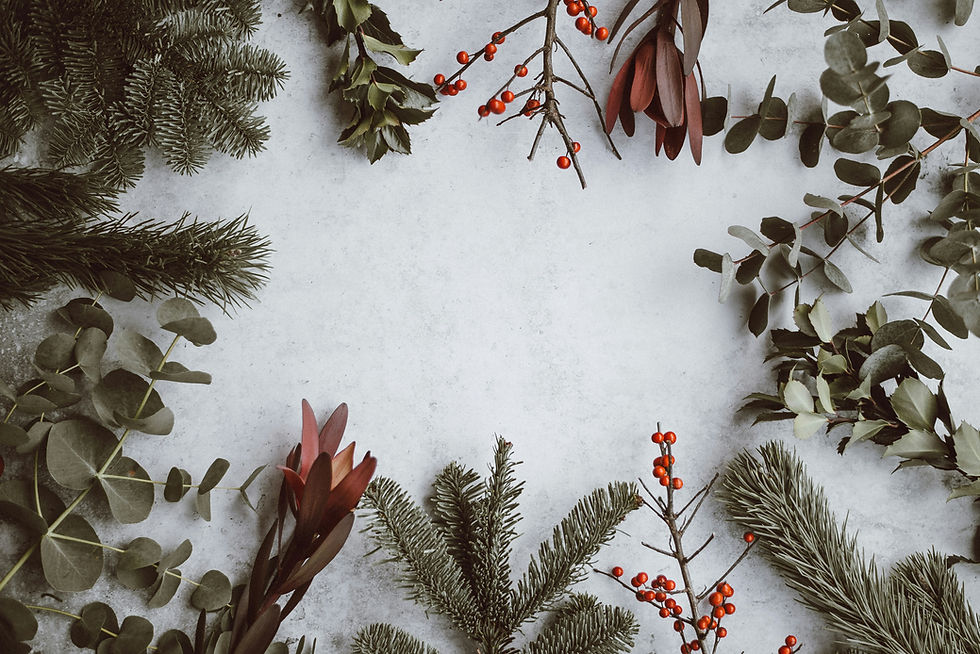Keep Your Pets Safe This Holiday Season: Beware of Toxic Christmas Plants
- Lonsdale Place Veterinary Clinic

- Dec 17, 2024
- 3 min read
Updated: Dec 30, 2024

The holiday season is a time of joy, decorations, and celebrations, but some of the festive plants we bring into our homes can pose a danger to our pets. At Lonsdale Place Veterinary Clinic, we want to help you keep your furry family members safe and healthy during the holidays by highlighting common Christmas plants that are toxic to pets. North Vancouver Vet
1. Poinsettias
Poinsettias are a classic Christmas decoration with their bright red leaves, but they can cause mild toxicity in cats and dogs if ingested. While they are not as dangerous as once believed, they can still irritate your pet's mouth and stomach, leading to drooling, vomiting, or diarrhea. If you notice these symptoms, keep a close eye on your pet and contact us if symptoms worsen. North Vancouver Vet
2. Mistletoe
Mistletoe is another traditional decoration that can be dangerous for pets. Both European and American mistletoe varieties contain compounds that can cause gastrointestinal upset, including vomiting and diarrhea. In larger quantities, mistletoe may lead to abnormal heart rate, difficulty breathing, or even seizures. If your pet ingests any mistletoe, it’s important to seek veterinary care immediately.
North Vancouver Vet
3. Holly
Holly's spiny leaves and bright berries look festive, but they are highly toxic to pets. The leaves contain saponins, which can cause severe gastrointestinal irritation. Symptoms include drooling, vomiting, and diarrhea. The sharp edges of the leaves can also cause injury to your pet's mouth and throat. Keep holly well out of reach or opt for artificial alternatives. North Vancouver Vet
4. Lilies
While lilies are more common around Easter, they sometimes appear in holiday floral arrangements. Lilies are extremely toxic to cats and can cause acute kidney failure, even if only a small amount of the plant is ingested. If you have cats, avoid having lilies in your home altogether, and contact us immediately if exposure occurs.
North Vancouver Vet
5. Christmas Trees and Pine Needles
While Christmas trees themselves aren’t considered highly toxic, their needles can be a hazard. If ingested, pine needles can cause oral irritation, vomiting, or even gastrointestinal obstruction. Additionally, standing water for live trees may contain chemicals or bacteria that are harmful to pets if ingested. Be sure to keep pets away from the water and clean up any fallen needles regularly.
North Vancouver Vet
6. Amaryllis
Amaryllis plants are a popular gift during the holidays, but they are toxic to both cats and dogs. The bulbs are especially dangerous, containing toxins that can cause vomiting, diarrhea, abdominal pain, and lethargy. Keep these plants well out of your pet’s reach. North Vancouver Vet

Keeping Your Pets Safe
To ensure your pets stay safe this holiday season:
Keep toxic plants out of reach, or avoid them altogether.
Consider using artificial plants as a pet-friendly alternative.
Supervise pets around holiday decorations and floral arrangements.
If you suspect your pet has ingested a toxic plant, contact Lonsdale Place Veterinary Clinic immediately or seek emergency veterinary care.
North Vancouver Vet
Happy Holidays from Lonsdale Place Veterinary Clinic! The holidays should be filled with joy, not stress over a sick pet. By being mindful of the dangers these common plants pose, you can keep your pets safe and enjoy a happy and healthy holiday season. If you have any concerns about holiday hazards or your pet's health, our team at Lonsdale Place Veterinary Clinic is here to help!



